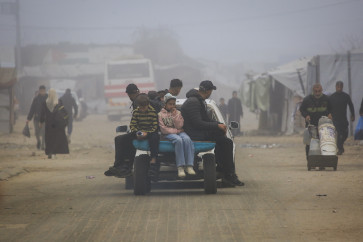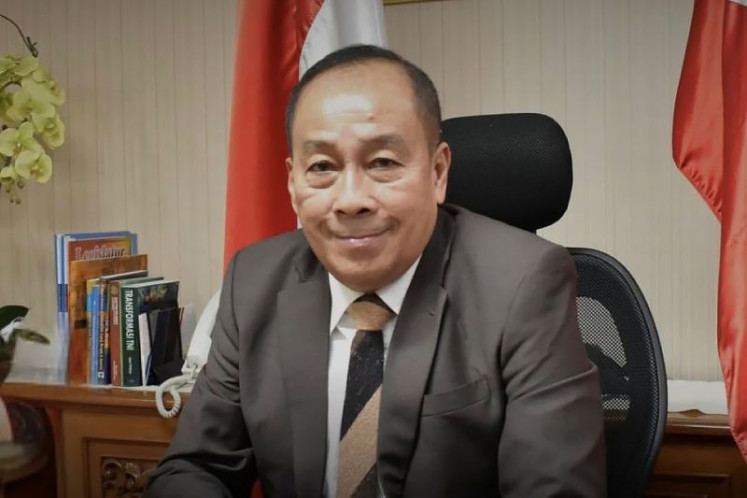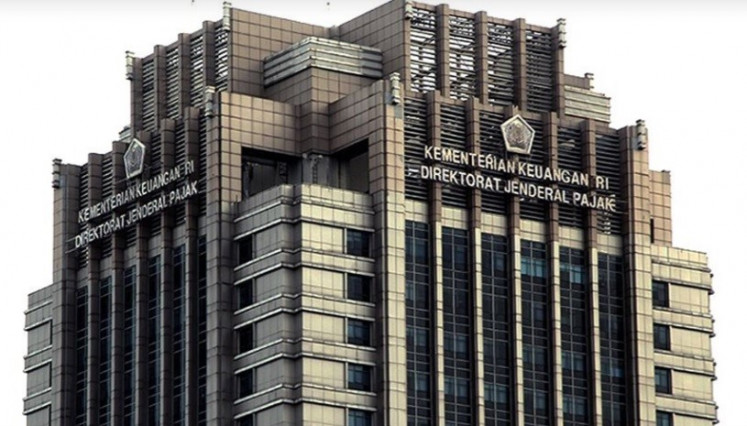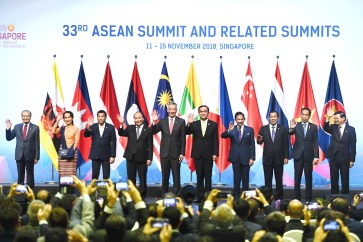Popular Reads
Top Results
Can't find what you're looking for?
View all search resultsPopular Reads
Top Results
Can't find what you're looking for?
View all search resultsThe case for collective leadership in ASEAN
Change text size
Gift Premium Articles
to Anyone
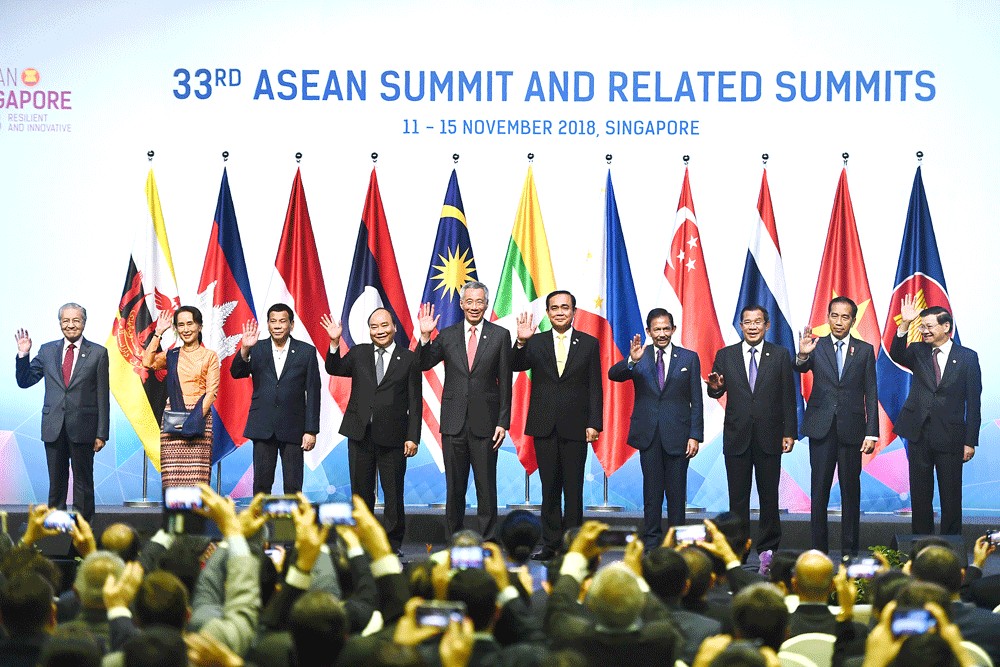 Catching up with the neighbors: The leaders of ASEAN member states, (from left) Malaysia’s Prime Minister Mahathir Mohamad, Myanmar’s State Counsellor Aung San Suu Kyi, the Philippine’s President Rodrigo Duterte, Vietnam’s Prime Minister Nguyen Xuan Phuc, Singapore’s Prime Minister Lee Hsien Loong, Thailand’s Prime Minister Prayut Chan-O-Cha, Brunei’s Sultan Hassanal Bolkiah, Cambodia’s Prime Minister Hun Sen, Indonesia’s President Joko Widodo and Laos’ Prime Minister Thongloun Sisoulith, pose for a group photo at the opening ceremony of the 33rd ASEAN summit in Singapore. (AFP/Jewel Samad)
Catching up with the neighbors: The leaders of ASEAN member states, (from left) Malaysia’s Prime Minister Mahathir Mohamad, Myanmar’s State Counsellor Aung San Suu Kyi, the Philippine’s President Rodrigo Duterte, Vietnam’s Prime Minister Nguyen Xuan Phuc, Singapore’s Prime Minister Lee Hsien Loong, Thailand’s Prime Minister Prayut Chan-O-Cha, Brunei’s Sultan Hassanal Bolkiah, Cambodia’s Prime Minister Hun Sen, Indonesia’s President Joko Widodo and Laos’ Prime Minister Thongloun Sisoulith, pose for a group photo at the opening ceremony of the 33rd ASEAN summit in Singapore. (AFP/Jewel Samad)
O
ver three years have now passed since the launch of the ASEAN Community. At that time, during the curtain closure for 2015, the 10 member states of the grouping celebrated what was hoped would usher in a new dawn, in which the peoples of the region would determine their own political, economic and socio-cultural destiny.
However, few could have predicted how the region would look like just a few years later. The events that have transpired since the milestone launch date suggest that ASEAN is still some way off its ambitions to be the master of its own fate.
The ongoing trade war between the world’s two largest economic powers — the United States and China — has dragged down the economies in Southeast Asia. A recent survey by Bloomberg forecasts slowing gross domestic product growth for Indonesia (from 5.2 percent in 2018 to 5.1 percent in 2019), Malaysia (from 4.7 percent to 4.6 percent), Singapore (from 3.3 percent to 2.7 percent), Thailand (from 4.2 percent to 3.9 percent) and Vietnam (6.9 percent to 6.6 percent).
Despite initial optimism earlier in December that presidents Donald Trump and Xi Jinping had agreed to pause their destructive trade war following a meeting on the sidelines of the G20 summit in Buenos Aires, it became apparent this was not the case, and ASEAN would also suffer as a result for the foreseeable future.



